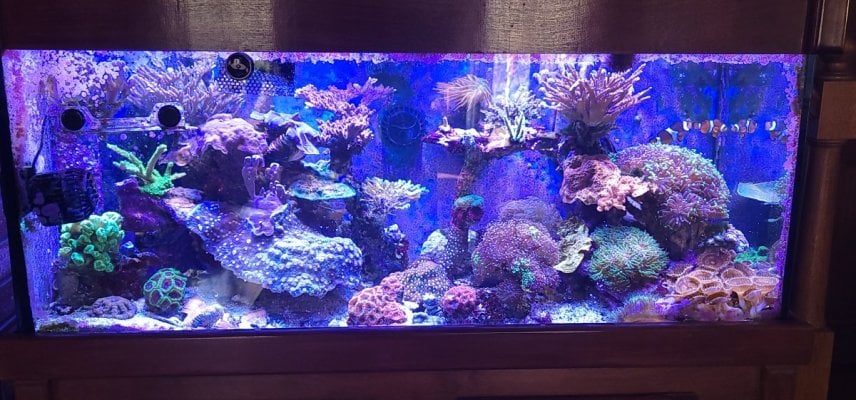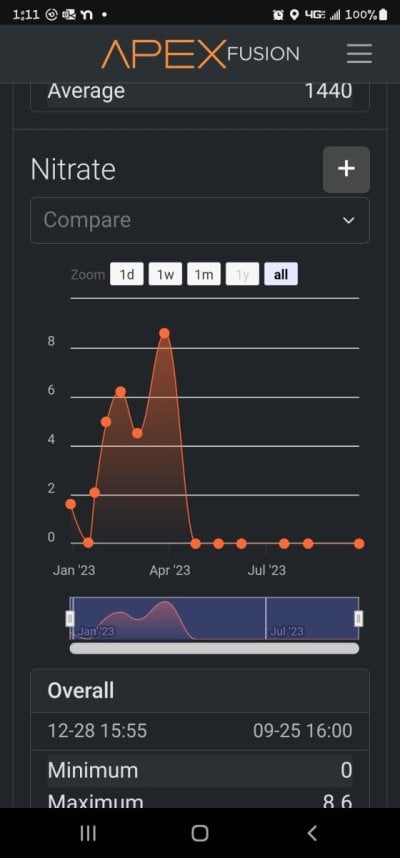I’ve been doing more reading on coral health and carbon dosing, etc, and I see mostly phosphate/phosphorus being discussed. It seems carbon dosing is primarily to deliver the PO4 to corals.
I see a lot of discussion about bottoming out PO4 which can starve corals and also contribute to dinos. Does bottoming out NO3 really cause any problems? Why do we care about a 100x NO3/PO4 ratio, or more specifically, keeping NO3 so high?
If we maintain PO4 between 0.05-0.15ppm and let NO3 fall to a low 1ppm number, what would be the issues? I ask because I always see 5-15ppm as the “range” but tanks of old used to run undetectable NO3 for decades.
I haven’t really seen a straight forward theory to this. Basically, what would take priority with testing/chasing between PO4 and NO3?
I see a lot of discussion about bottoming out PO4 which can starve corals and also contribute to dinos. Does bottoming out NO3 really cause any problems? Why do we care about a 100x NO3/PO4 ratio, or more specifically, keeping NO3 so high?
If we maintain PO4 between 0.05-0.15ppm and let NO3 fall to a low 1ppm number, what would be the issues? I ask because I always see 5-15ppm as the “range” but tanks of old used to run undetectable NO3 for decades.
I haven’t really seen a straight forward theory to this. Basically, what would take priority with testing/chasing between PO4 and NO3?


























